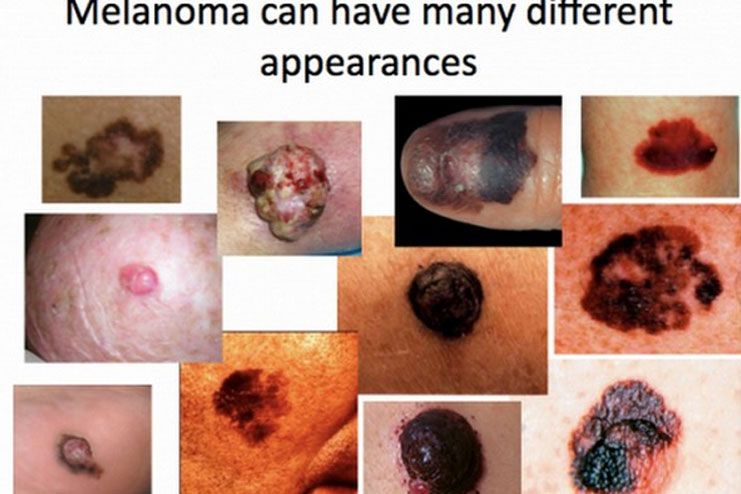What Is Metastatic Melanoma?
Melanoma is a type of skin cancer. When it spreads to other places in your body, it’s called metastatic, or advanced. You may also hear your doctor refer to it as stage IV melanoma.
Melanoma often spreads to:
- Tissue under the skin
- Lymph nodes
- Lungs
- Liver
- Brain
Although in most cases it can’t be cured, treatments and support can help you live longer and better. Doctors have new therapies that have greatly increased survival rates. And researchers are working to find new medications that can do even more.
Remember: You still have control over the decisions you make about your treatment and your life. It’s important to have people you can talk to about your plans, your fears, and your feelings. So find support and learn about your treatment options. That will help you make the most of your life.

Causes
In most cases, melanoma is caused by exposure to ultraviolet (UV) radiationfrom the sun or tanning beds. It damages the DNA of your skin cells, and they start to grow out of control.
- Fair skin, along with lighter hair and eye color
- Many moles or irregular moles (not beauty marks or small brown blemishes)
- A family history of melanoma
Symptoms
If your melanoma has spread to other areas, you may have:
- Hardened lumps under your skin
- Swollen or painful lymph nodes
- Trouble breathing, or a cough that doesn’t go away
- Swelling of your liver (under your lower right ribs) or loss of appetite
- Bone pain or, less often, broken bones
- Headaches, seizures, or weakness or numbness in your arms or legs
- Weight loss
- Fatigue
Treatment
Although metastatic melanoma is not easy to treat, you do have options. Choosing what’s right for you will depend on where and how big the cancer is, what your health is like, and what your wishes are. Since most cases of metastatic melanoma can’t be cured, the goals of treatment are to:
- Shrink or stop the growth of the disease where it has spread.
- Stop it from spreading to new areas.
- Make you more comfortable.
Treatment used to be mainly radiation and chemotherapy. Now there are newer drugs available that can work better, studies show. Your treatment may include:
Surgery. Your doctor may remove tumors or lymph glands. Although surgery alone probably won’t cure the cancer, it can help you live longer and have fewer symptoms. Your doctor will likely also use one or more other treatments.
Radiation and chemotherapy . These can help some people, depending on the size and location of the cancer.
Immunotherapy. These drugs boost your immune system so it can better attack the cancer. You get immunotherapy through an IV or a shot in high doses. It can have serious side effects, but it can also shrink metastatic melanomas and help some people live longer. These drugs include:
- Interferon-alpha and interleukin-2: These older drugs can help some people live longer.
- Ipilimumab (Yervoy): There are two uses for this drug. It can be given to individuals who have had surgery to remove melanoma in order to prevent the melanoma from coming back. It can also be used for late-stage melanoma that cannot be removed by surgery. But the drug doesn’t work for everyone, and it can have serious, even life-threatening, side effects.
- Nivolumab (Opdivo): It works by inhibiting the PD-1 protein on cells, which blocks the body’s immune system from attacking melanoma tumors. It’s been shown to increase overall survival.
- Pembrolizumab (Keytruda): In people with advanced melanoma who have already been treated with Yervoy, Keytruda may shrink tumors in some. You take it as an IV infusion every 3 weeks.
- esearchers are studying many other drugs that spur the immune system to fight melanoma. Because metastatic melanoma is so hard to treat, you may want to ask your doctor about taking part in a clinical trial, which uses a treatment that’s still under research.
Targeted therapy. This kind of treatment aims to kill cancer cells without harming healthy ones. They may work for people who have certain changes in genes. Because these treatments target the tumors, they may cause fewer side effects than chemotherapyor radiation.
Some drugs attack a gene called BRAF. About half the people who have melanoma have changes in this gene, which helps cancer cells grow. If you have a tumor with BRAF, these drugs may shrink it and extend your life. They include:
- Dabrafenib (Tafinlar)
- Vemurafenib (Zelboraf)
Other drugs block an enzyme called MEK. This enzyme sends abnormal signals to the body, causing cancer. These drugs, working in combination with a BRAF inhibitor to attack cancer cells, seem to shrink tumors for a longer period of time:
- Cobimetinib (Cotellic)
- Trametinib (Mekinist)

Post a comment